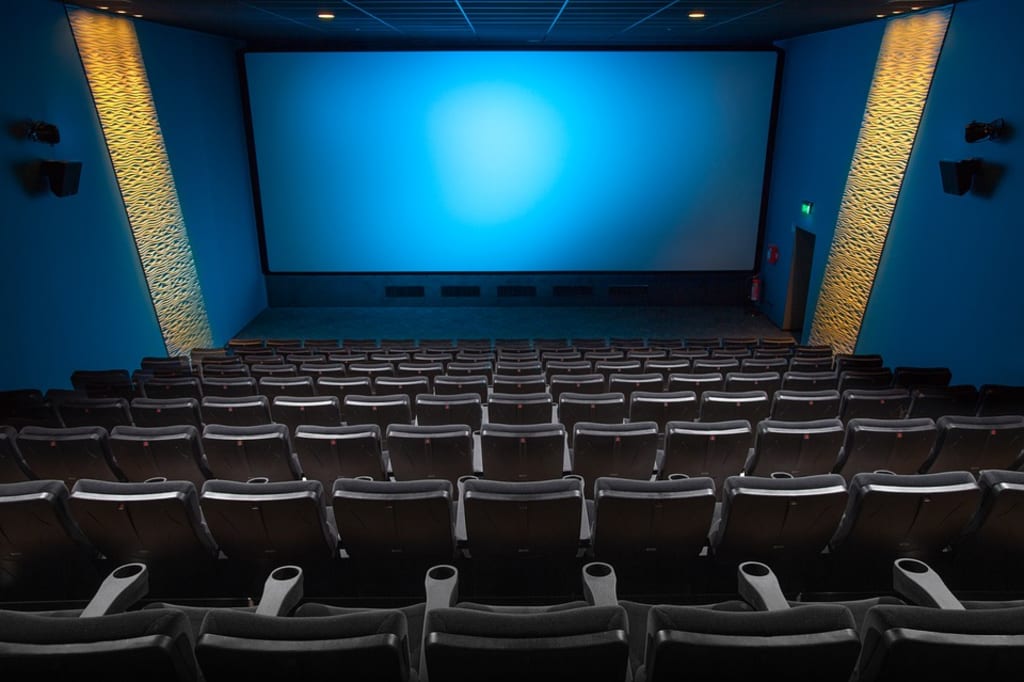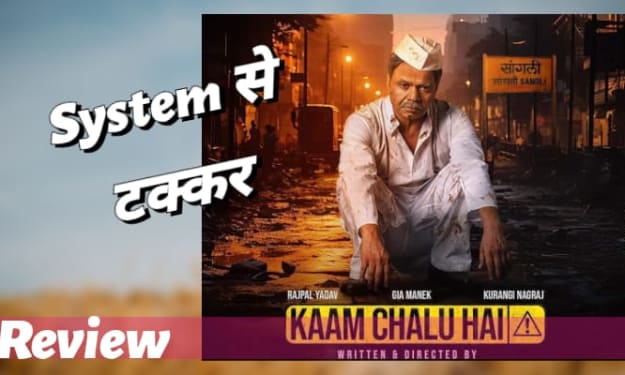The New Wave of Sapphic Cinema
It’s finally time for the queer women centred films we deserve

It was in a showing of Disobedience (Dir Sebastián Lelio, 2018), in December last year when I noticed the amount of queer female films being released in 2018/2019, through the sheer amount of trailers for sapphic films. It appears that the times are thankfully changing, with queer representation in film.
When I was growing up, you had to dig deep to find a representation of queer women on screen, and they weren’t great films at that. Often these films portrayed queer women in a very male gazey way, or they were just very low budget, due to the lack of ability to become a mainstream success in this heteronormative society. Or there were the films guilty of queerbaiting audiences, playing on our lack of representation, keeping it heteronormative whilst also playing on our yearning for some sort of queer representation. From the YouTube series, Drunk Lesbians Watch, you can clearly see how every queer woman has experienced this yearning for representation and having to find it in these frankly, quite bad and inaccurate films. And from these discussions on the series, everyone agrees that it’s time for queer women to be involved in the creation and production of these films, in order to avoid these misrepresentations and Male gaze angled cinema. And I think now is the time we’re beginning to see these sapphic films that queer women can be proud of, or are at least they’re better than what we’ve had for the past 10 years.
Over the past year, we’ve seen the release of a far few queer women centred films, some of which are even nominated for Oscars. Although the budget seems to be going up for these films, the lack of queer women actually being involved in the production of these films leads to these portrayals falling short a little bit, something I will discuss later in relation to some of these films individually. These are the five films I’ll be looking at in more detail, Disobedience (Dir Sebastián Lelio, 2018), Lizzie (Dir Craig William Macneill, 2018), The Miseducation of Cameron Post (dir. Desiree Akhavan, 2018), The Favourite (Dir. Yorgos Lanthimos, 2018) and Colette (Dir. Wash Westmoreland, 2018).
Disobedience follows the story of Ronit (Rachel Weisz), a woman who grew up in an Orthdox Jewish community in London, who’s sexuality forced her to start a new life in New York. After her father, a prominent figure in the community, dies, she returns to London and sparks up an old flame (Esti, played by Rachel McAdams). The film is based on the novel written by Naomi Alderman, a queer Jewish woman. The novel definitely helps guide the film, but the director, Sebastián Lelio, chooses to focus more on the romantic storyline than is featured in the novel. Although directed by a man, the film has a unique freshness to the representation of queer female sex scenes. The scene, if you have not seen it, is a lot more raw and honest than a lot of Hollywood romance, it’s not afraid to be a bit rough around the edges. Maybe it’s that it’s created by a man aware of women on the fringes of society, as well as using guidance from the original storyteller, in comparison with the cringeworthy scenes from Blue is the warmest colour, which almost fetishes the women. The sex scene within the film focusing on the intimacy between Ronit and Esti rather than nudity. Sadly, the film did lack mainstream success and took a long time to get released, perhaps because it’s so heavily focused on the dramatic love story between two women, unlike The Favourite, which uses power and humour to distract from its overt queerness.
Lizzie, however, misses the mark with the portrayal of female nudity on screen. The moment I’m referencing specifically is the scene in which Lizzie and Bridget murder Lizzie’s parents. What purpose does it serve in the film to make them both naked? It just seemed so bizarre and unnecessary to make them both naked, like it was only serving a purpose for the straight men who felt left out. The film throughout was quite brutal towards the women, something we’ve seen in countless films throughout the years. All I can say is that you can see it’s directed and written by a man, go figure.
And with a film like Lizzie then comes a film of high contrast, hooray for Desiree Akhavan and The Miseducation of Cameron Post. Akhavan adapts the novel of the same name without the cliches of many sapphic films, and provides a voice for queer teens, rather than adult dramas which are the typical find. Akhavan also represents different voices within the LGBTQ community, including an earnest portrayal of a Native American who describes themselves as being two souled, a term within the Native American community. It’s a moving tale of friendship and finding a family who accepts who you are.
The Favourite is the kind of film I think of when someone’s talks about a ‘gay agenda.’ They did some clever marketing with this film, rather the trailers focused on the humour and the star power, making it a big Oscar contender. Whilst there’s also queer women in the film, and it’s not a huge deal, often films get held up on the event of a queer person coming out and the struggles they encounter with their families. The absurdity of the film, the great performances throughout, and the humour add to my love of the film. The film shows that not every queer film needs to be about a forbidden dramatic romance story. Definitely worth a watch!
Colette, although it fell a bit short in terms of how it was executed in terms of it as a film, it does explore ideas surrounding gender as well as sexuality, very progressive for a film starring a big name like Keira Knightly. My biggest pet peeve in terms of this film’s exploration of Colette’s sexuality, is her husband’s character, I’m done with creepy men fetishising queer women on screen. Although she ultimately leaves him in the end, do we have to have her put up with him having an affair with the same woman she’s involved with? Worth a watch for the exploration of gender and sexuality, but beware of the creepy husband.
Although there is more queer women-centred films being created now than ever, as in the case of some of these films, striving to create something for queer women and not from the gaze of a man, or based on stereotypes is the direction cinema needs to be headed. A simple way to achieve this is for the film industry to employ more queer women to direct, write or star in these films, as it's proven to create the best queer content. Hopefully, as we see the next wave of sapphic cinema, the films that create a progressive representation will be rewarded and begin to learn from past mistakes. Over the next year we have a few films to look forward to like the new Virginia Woolf/Vita Sackville-West biopic, Vita &Virginia, directed by Chanya Button. At least LGBTQ youth now have a wider pool of representation to draw from in entertainment and feel a little less alone.
About the Creator
Katie Haines
I'm a recent English and Film Studies graduate, writing about things I like, including films, books, TV and queer content.






Comments
There are no comments for this story
Be the first to respond and start the conversation.